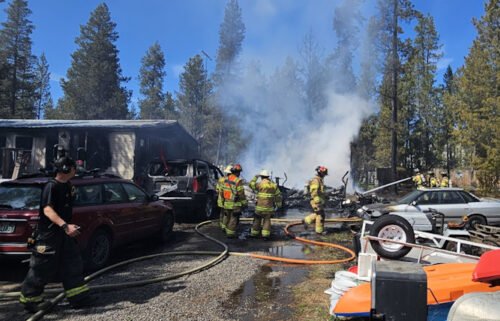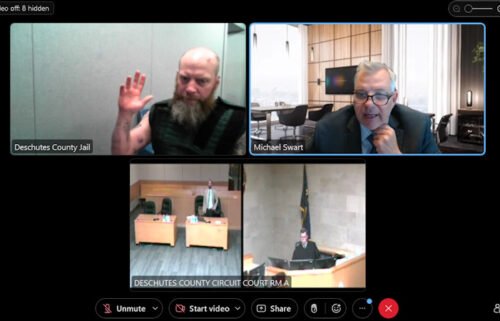ODOT beefs up rail incident prevention, response

The Oregon Transportation Commission has approved a proposed updated set of rules for transporting hazardous materials by rail.
Combined with ODOT’s addition of four rail inspectors, the rules aim to improve the state’s ability to both prevent incidents in the first place and respond to them if they do occur.
“These rules will help ensure that first responders get the information they need, when they need it, and agencies that need the information for planning purposes can also get it,” said ODOT Director Matthew Garrett.
While much information about railroads and what they transport is proprietary, there is information that can be shared that will help emergency responders and the impacted public, and these rules help clarify that. For example:
Emergency responders will now get immediate notification from railroads for incidents involving hazardous materials. Those notifications include information about the type, quantity and placement of any materials on the train.
Railroads now must file quarterly reports with ODOT detailing shipments of hazardous materials. ODOT will in turn share those reports with emergency responders. The new rules specify the information is to be released under the state’s public records law, but allow some exemptions for trade secrets.
ODOT can now assess penalties up to $1,000 for each day railroads don’t comply with the rules.
The new rules will be posted on the Secretary of State’s website (updated the 15 th of every month); the rules as presented to the OTC are available in ODOT’s News Room website.
Adding four new staff members will bring the number of railroad inspectors who partner with the Federal Railroad Administration in overseeing the safety of Oregon’s extensive rail operations to 11.
When the four new hires are certified by FRA, ODOT will have two inspectors in four of the five FRA disciplines (operating practices; hazardous materials; signal and train control; and motive power and equipment), and three inspectors in the fifth discipline (track).
“We increased staffing in part because of national concerns about the increase in crude-by-rail shipments,” said Garrett. “With our new staff members, we will have specific discipline-trained inspectors on duty to cover the state even if an inspector is out sick or on vacation.”
The Rail Division team decided to bring the track inspector total to three because statistics show that track-related defects are the most common cause of derailments. All positions require certification from FRA.
New employees receive certification training (both classroom and in the field) from FRA as well as from state inspectors who have been previously certified.
Only FRA management has the ability to provide certification, and training may take a year or more. New employees cannot perform inspections on their own until after they have received their certification.
The four disciplines ODOT hired for are:
Operating Practices – Enforces regulations relating to railroad operating rules, hours of service, drug and alcohol, and accident reporting, all to ensure train crews operate trains safely.
Track – Enforces regulations relating to railroad tracks and associated structures, ensuring the trains have a safe system to operate on.
Hazardous Materials – Enforces regulations relating to the packaging and transportation of hazardous materials, to reduce the chance of release.
Signal & Train Control – Enforces regulations relating to signal and train control systems and highway-railroad at-grade crossing signals to ensure these signal systems operate per FRA requirements.



